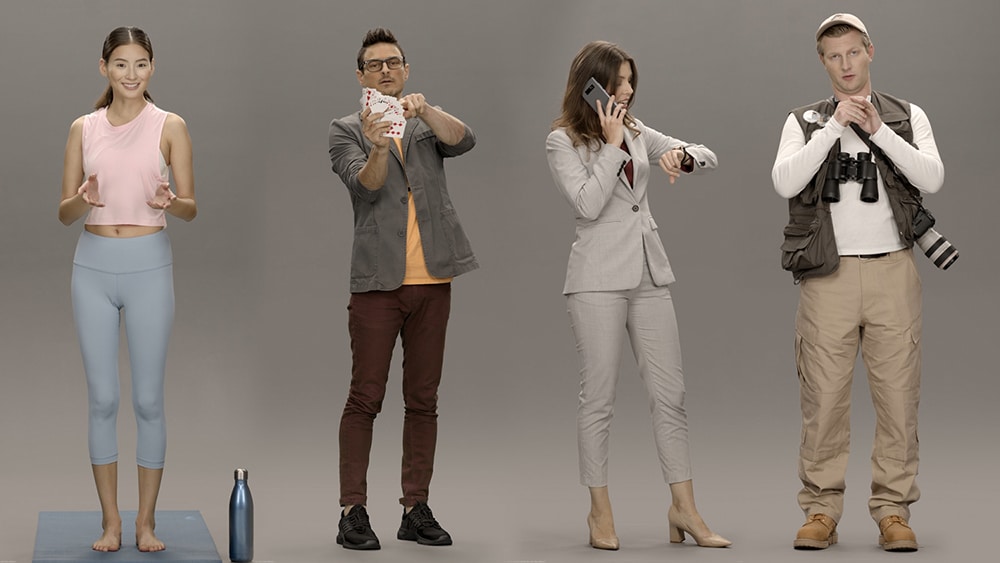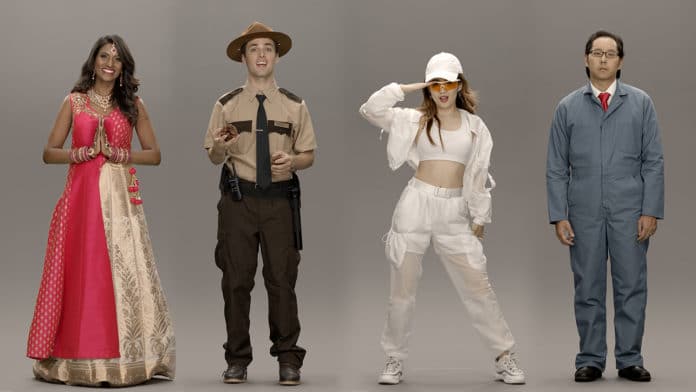In the middle of December, the mysterious company NEON, founded by the Samsung Technology and Advanced Research Labs (STAR Labs) and directed by its president Pranav Mistry, was creating a buzz on the web by teasing a mysterious artificial intelligence technology. There were no more details; they only quoted us for CES 2020, the Las Vegas technology event that the brand would use to give more information.
After teasing it for few weeks, STAR Labs unveiled NEON – more realistic “artificial humans” – at the Consumer Electronics Show (CES) this week. The company builds artificial humans, which can act as avatars for people, businesses, and companies.

These are computer-generated images, combined with graphics, animated models – all controlled by an algorithm and programmable source code. NEON, as the company explains on its website, behaves like a real person, with the ability to show emotions and intelligence, but not that of the assistant or virtual human himself. This, in fact, can acquire different personalities, aptitudes, and names depending on the use case.
Over time, they will develop memories and learn new skills, create new expressions and new movements. Each “NEON” is unique and has its own personality. They can also learn to help with tasks that require a human touch. They could serve as teachers, financial advisers, caregivers, janitors, receptionists, actors, or even TV reporters, as it can speak different languages from Spanish to Hindi, from Japanese to English, NEONs can speak it all.
NEON artificial humans are based on two proprietary technologies. The first is called “CORE R3”, for “Reality, Real-time and Responsive.” This allows the NEONs to react quickly and realistically with a latency of the order of a few milliseconds.
According to the firm, this is a major advance “in the fields of behavioral, neural networks, the generative evolutionary intelligence, and computational reality.” The CORE R3 engine is directly inspired by the way humans behave and interact. The second technology is called “Spectra.” It gives intelligence, learning, emotions, and memory to these virtual entities. For now, however, Spectra is still in the development phase and will be presented later this year at an event called Neonworld 2020.
The NEONs’ realism is impressive, but can also cause concern. In particular, there is a fear that this technology will be used to create DeepFakes type videos. However, the company says its technology has nothing to do with DeepFakes. The CORE R3 does not manipulate videos, but only creates new behaviors and interactions in real-time.
In addition, this technology was designed, taking into account ethical issues. The data will be secured by the latest generation protocols, and no one other than you will be able to access your interactions with a NEON. In addition, personal data will never be shared without permission.
NEON plans to launch its beta technology in the course of 2020 with a handful of partners from around the world. Initially, it will be possible to subscribe to the service that allows companies to hire/license NEONs from STAR Labs. In a more distant future, Mistry hopes one day to see its virtual beings appear in the cinema or on television.
